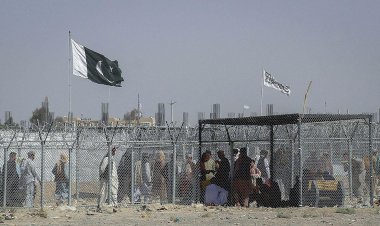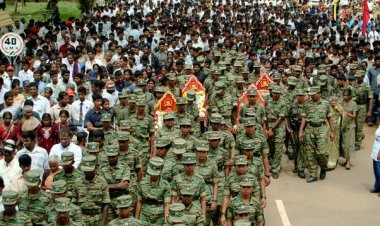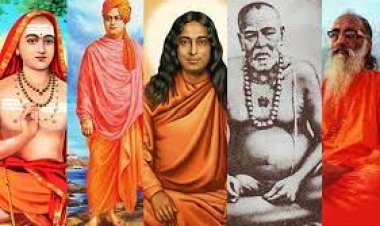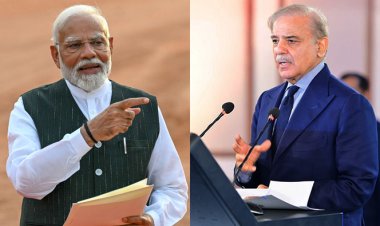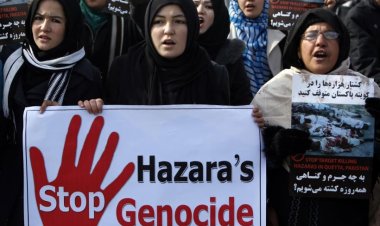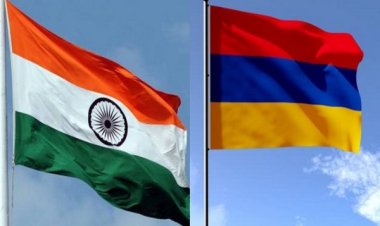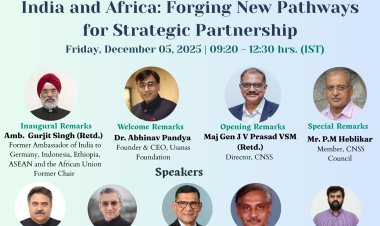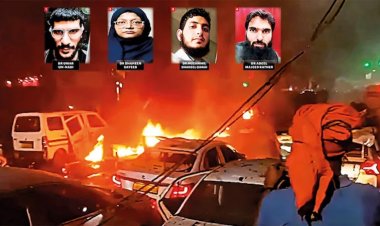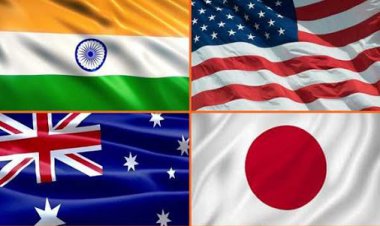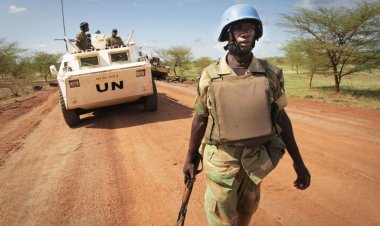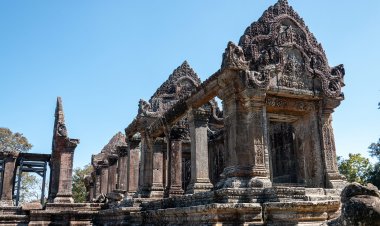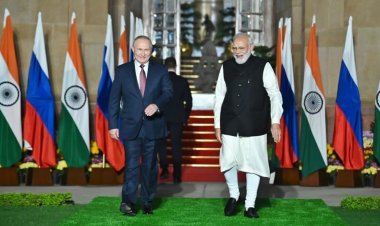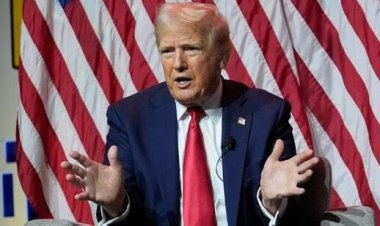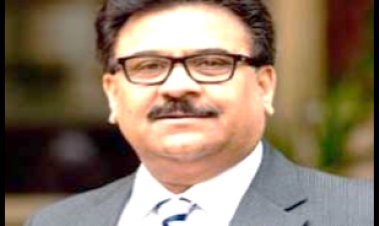Shifting Political Dynamics in Pakistan: Change or Continuity in Foreign Policy?
The article examines the changes in political dynamics within Pakistan, with a particular emphasis on the shift in foreign policy that has occurred following the formation of the new government. Additionally, the article delves into the evolving relationship between Pakistan and India, analyzing the current state of affairs and the potential implications for both countries.
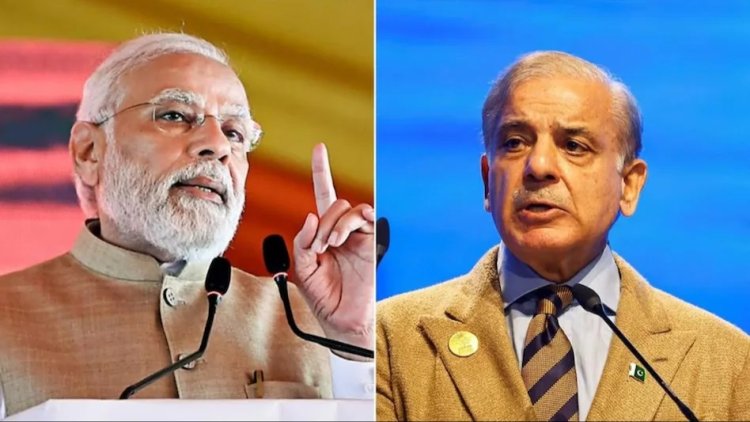
Commentary
By: Ruchika Sharma
The political landscape in Pakistan is experiencing a notable shift. The ruling Pakistan Muslim League-Nawaz (PML-N) claimed victory in the by-elections.
Nawaz Sharif, a former Prime Minister of Pakistan, is set to regain control of the Pakistan Muslim League-Nawaz (PML-N) after seven years of internal strife. Sharif was disqualified from both his role as prime minister and as party president by the country's apex court in 2017 due to corruption charges.
The Pakistan Tehreek-e-Insaf (PTI) reports that Nawaz Sharif, aged 74, is set to become the president of the ruling party in a meeting of the party leadership on May 11. The decision was made during a party meeting and was confirmed by PML-N Punjab president Rana Sanaullah during a press conference. The move is said to reflect a desire to have Sharif steer the party's course. The party intends to request that Sharif accept the top post of the party.
After his return to Pakistan in October last year after a four-year self exile in London, the former PM got a clean chit in corruption cases. Despite being poised for a fourth term as a Prime Minister, his party failed to secure a clear majority in the National Assembly during the February 8 general elections. Consequently, his younger brother Shehbaz Sharif, who is also perceived as favored by the military establishment, took over the party reins. Shehbaz Sharif was sworn in as the 24th Prime Minister of Pakistan after securing his second term with the support of 201 votes in parliament.
However, his tenure began amidst a backdrop of significant challenges, including political instability and economic turmoil at the forefront. These issues were further compounded by the resurfacing of allegations of election rigging in the bypoll elections. Former PM Imran Khan’s Pakistan Tehreek-e-Insaf orchestrated nationwide protests against alleged fraud in the elections. Notably, elections were held on key seats in Punjab, including NA-132 and NA-119, vacated by Shehbaz Sharif and Maryam Nawaz. In the various districts of Punjab and Balochistan phone and internet services were prohibted, furthermore, the elections were conducted under stringent security measures.
As Shehbaz Sharif grapples with these multifaceted challenges, the pressing need to arrest the plunging economic growth emerges as a top priority. Amidst soaring debt levels, a reassessment of diplomatic relations with neighboring countries becomes imperative. Business leaders in Pakistan have urged PM Sharif to consider open trade discussions with India, aiming to boost business and commerce, to stimulate economic growth of the financially strained nation. In a recent meeting at the Sindh CM house in Karachi, the business community also emphasized achieving political stability. During a press conference in London last month, Pakistan's foreign minister Ishaq Dar signaled a potential shift in diplomatic relations with India. He indicated the government's serious intent of reevaluating trade ties with India. However, this move comes amidst a backdrop of strained relations between the two countries, exacerbated by the removal of Article 370, revoking the special status of Jammu and Kashmir in August 2019. The diplomatic ties were downgraded between the two countries with Pakistan severing direct trade ties with India. After the aftermath of the Pulwama attack in February 2019, India had taken a stringent step against Pakistan in their trade relationship. Since 1996, India had followed World Trade Organization (WTO) guidelines by giving Pakistan ‘Most Favoured Nation’ status, meaning both countries treated each other's goods equally with similar tariffs. After the attack, India imposed 200% tax on all imports from Pakistan, creating a dent in the economic ties. Despite its MFN status, 1209 Pakistani products were in the negative list which were not allowed to be imported from India. Only 138 products were allowed to be imported from India through the Wagah-Attari border land route.
Pakistan-India Trade composition
The total trade between India and Pakistan was only around $2.29 billion in 2017. In 2018-2019 Pakistan mainly imported cotton, organic chemicals, and various industrial goods from India. Key imports included cotton ($550.33 million), organic chemicals ($457.75 million), plastic ($131.19 million), tanning/dyeing extracts ($114.48 million), and machinery ($94.88 million). India's imports from Pakistan consisted primarily of raw materials like mineral fuels, fruits, and hides. Key imports included mineral fuels and oils($131.29 million), fruits and nuts ($103.27 million), salt, sulphur, stone and plastering materials ($92.84 million), ores, slag and ash ($17.18 million) and raw hides and leather ($16.27 million).
With the election of a new prime minister, the focus has also turned on to foreign policy of Pakistan. During his victory speech at the National Assembly, Sharif pledged to maintain cordial relations with the neighbors based on the principles of equality and asserted Pakistan’s autonomy, vowing not to allow Pakistan to become a part of some great game.
Kashmir Issue: A never-ending Saga
In his speech, the constitutional status of Kashmir was again given a space. Shehbaz Sharif highlighted the Kashmir issue and equated its plight to that of Palestine and also proposed a resolution advocating the freedom of Kashmiris.
The Kashmir issue remains at the center of Pakistan's political landscape, overshadowing any possibility of improving relations with India. The relationship between the two nations hit a new low after a terrorist attack on the Pathankot Air Force base in 2016, which was carried out by terrorist groups operating from Pakistan. Tensions escalated even further when India abolished Article 370 of Jammu and Kashmir, dividing the state into two union territories in August 2019. Although there were indications of flexibility from Pakistan's Army Chief General Qamar Bajwa regarding Kashmir during former Prime Minister Imran Khan's tenure, any attempts towards normalization were blocked by him. Recently, speaking on foreign policy, Foreign Office spokesperson, Mumtaz Zahr Baloch stated that once the Cabinet is established, a clearer direction on foreign policy will be available, enabling a more informed response on Pakistan's interactions with India in the future.
As the relations between both countries remain stagnant, the South Asian Association for Regional Cooperation’s (SAARC) vitality has waned due to internal disagreements, hindering its development and engagement and making it lifeless. When questioned about External Affairs Minister S. Jaishankar's assertion regarding SAARC's challenges stemming from one member's violent actions against others, Zahr Baloch alleged India as the sole obstacle to SAARC's progress.
Biden’s Letter to Sharif
The US President Joe Biden marked the first official communication last month by writing a letter to Pakistan’s PM Shehbaz Sharif. He affirmed continuous support from Washington in addressing key global and regional issues. He also highlighted the ties between the US and Pakistan critical for regional peace and security.
As per Biden's letter, shared by the US Embassy, the President emphasized on forging a partnership between the United States and Pakistan. Biden also underscored the shared goal of fostering improved health, security, economic prosperity, and educational opportunities for all. Moreover, he highlighted the collaborative efforts under the US-Pakistan Green Alliance framework to enhance climate resilience, promote sustainable agriculture and water management, and aid Pakistan's recovery from the devastating floods of 2022. The letter concluded with an affirmation to continue building a strong relationship between both nations and fostering a close bond between their people.
This marks a notable contrast to the lack of such communication between President Biden and former Prime Minister Imran Khan when Biden assumed office in January 2021. Although the United States expressed a shift in their approach by sending a letter, they made it clear that such correspondence should not be deemed excessive and replace verbal communication. Notwithstanding, President Biden refrained from congratulating Prime Minister Sharif on his election victory or assumption of power.
Military Influence
On the economic and security front, the military-dominated Pakistan is dealing with a myriad of issues internally including Terrorism, high inflation, Pakistani rupee devaluation and dwindling foreign reserves. The country’s economy is on its knees and is struggling to financially stabilize after securing a $3 billion standby agreement from the International Monetary Fund (IMF). On the other hand, imprisoned former Prime Minister, Imran Khan urged the IMF to conduct an audit of the contested February 8 elections before engaging in further discussions regarding bailout talks with Islamabad.
While every nation has its own army, Pakistan's army indeed has its own nation. It’s well known that Pakistan's political landscape threads are deeply connected with the Military, with the latter’s burgeoning influence in the key institutions. It is yet to see how General Munir Asim, and newly elected Prime Minister Shehbaz Sharif will approach relations with India moving forward. The political system often characterized by unfair elections reflecting a fractured mandate was exacerbated by military intervention, as evident in the tumultuous February 8 elections. Known for its influence on foreign and security policy, the Pakistan Army has now shifted its focus towards geoeconomics. The involvement of the Pakistan Army across multiple sectors, and even owning a bank, distinguishes it as possibly the only military in the world with a significant business empire within its own nation. Official records presented in Parliament indicate that the business operations of the Pakistan Army exceed Rs 1.5 trillion. The Fauji Foundation oversees various projects and units, including Fauji Cereals, Foundation Gas, Fauji Fertilizer Company Ltd, Fauji Cement Co Ltd, and Fauji Oil Terminal and Distillery Co Ltd. etc.
Looking at General Asim Munir's doctrine, he is focusing on economic security and enhancing Pakistan's international image. He is directing efforts to prioritize regional connectivity and global development partnerships, aiming to increase Pakistan's geostrategic importance. He advocates for ending dependency and articulated his vision of promoting self-reliance through the development of a robust economy, stressing that all Pakistanis must throw out the beggar's bowl.
Pakistan has established a Special Investment Facilitation Council (SIFC), aimed at attracting foreign investment. The military plays a significant role with the army chief as a member. Amid Pakistan's severe economic crisis, General Asim led the establishment of the Special Investment Facilitation Council (SIFC) last year. In his tweet, Shehbaz Sharif highlighted the coalition government's decision to set up SIFC. He tweeted that the SIFC position is a pivotal decision-making body aimed at driving essential reforms within the economy's framework.
Serving as a ‘single-window’ investment facilitation body, its primary goal is to attract foreign investments from Gulf nations, China, and the United States across sectors including mining, agriculture, information technology, and energy.
Also, he emphasized on projecting a positive image of Pakistan, elevating its status as a regional middle power, and prioritizing geoeconomics over geopolitics.
Following criticism from Imran Khan towards Pakistan's military, the hybrid model of Pakistan has eroded its public image. In order to display a soft image of Pakistan, General Munir has pledged his commitment to preserve democracy in the country as a measure to counteract these negative perceptions.
In his defense diplomacy efforts, General Munir aims to combat both internal and cross-border terrorism which not only emanates from Tehrik-e-Taliban Pakistan (TTP), famously known as Pakistani Taliban but also by ethnic separatist militant groups from Balochistan. General Munir Asim efforts are directed towards positioning Pakistan as a stabilizing force in regional security.
As Pakistan navigates its strategic balancing act between the United States and China, it has rekindled ties with the U.S. by renewing the Communications and Information Security Memorandum of Agreement (CISMOA). This agreement allows for enhanced U.S.-Pakistan defense cooperation, particularly in counterterrorism efforts. General Munir's visit to Washington in December’23 aimed to strengthen military cooperation and attract investment through the Special Investment Facility Council. Despite challenges in China-Pakistan Economic Corridor (CPEC) projects, General Munir's commitment to securing Chinese interests has revitalized cooperation. Meeting with Chinese Foreign Policy Chief Wang Yi, General Munir reaffirmed Pakistan's support for deepening relations with China, leading to Beijing commending Islamabad as a steadfast defender of their strong bilateral ties.
Future of India-Pakistan Relations
The relationship between India and Pakistan due to unresolved disputes and conflicts, terrorism etc., has put the ties in a frozen state. The clandestine collaboration among state intelligence, corrupted judiciary, and organized crime, which appears to control the system from behind the scenes, characterizes Pakistan as a deep state. Pakistan's close alignment with China remains a grey zone challenge for India. By bringing the constitutional status of Kashmir as a precondition to direct talks with India has decoupled Pakistan from the diplomatic dialogue channel. As Pakistan is known for harboring and sheltering terror outfits, the state’s security situation has been deteriorating steadily due to cross border terrorism emanating from Afghanistan. To ensure stability to fix its grappling economy, Pakistan needs to work with India to combat against terrorism. Resuming diplomatic dialogue can pave a way to narrow the trust deficit, conflict resolution, and mechanism to combat-terrorism. This would also ensure regional stability and security. While the road ahead may be challenging, the new Pakistan government should learn from past successes and failures to reconcile ties with India that can help sustain momentum towards peace and stability.
Disclaimer: This paper is the author's individual scholastic contribution and does not necessarily reflect the organization's viewpoint.
Ruchika Sharma is pursuing MA in Diplomacy Law and Business from O.P Jindal Global University. She is interested in the evolving dynamics in the world of international politics.

